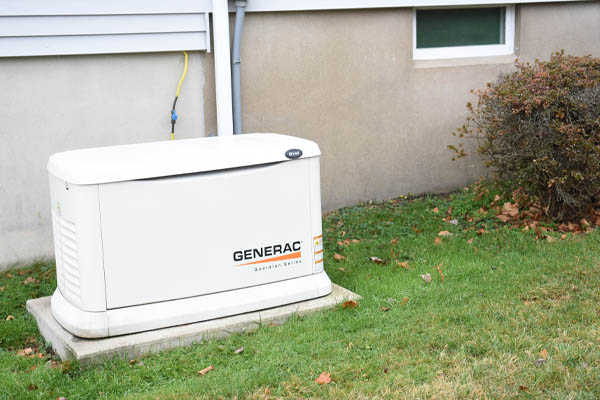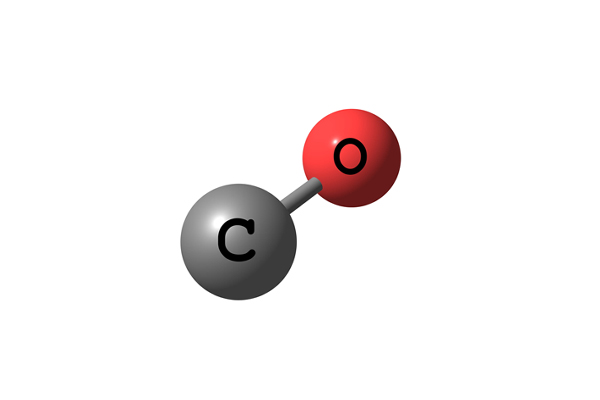Signs it’s Time to Replace Your Standby Generator

Extreme weather conditions in the US, like heavy snowfall, mean power outages are more common. Of course, when the grid goes down, you can rely on your backup generator to help you out. Anyone who owns a standby generator can attest to the fact that they are highly beneficial in times like these. Therefore, to avoid any inconveniences, be sure to perform standby generator maintenance to keep it in excellent condition. However, like any type of machinery, there will come a time when maintenance and repairs are not the most cost-effective option. Instead, the smarter choice will be to go for a standby generator replacement. This article discusses some of the top signs to look for.
Signs it’s Time to Replace Your Standby Generator
Contents
- 1 Signs it’s Time to Replace Your Standby Generator
- 1.1 Your Standby Generator Has Trouble Starting
- 1.2 Whole-House Generator Often Fails & Needs Repairs
- 1.3 Excessive Fuel Consumption
- 1.4 Backup Generator Age
- 1.5 Your Needs Have Outgrown Your Power Generator Size
- 1.6 Excessive Standby Generator Wear
- 1.7 Your Have An Outdated Generator
- 1.8 Your Generator Produces Excess Carbon Monoxide
- 1.9 Whole-House Generator Has Inconsistent Power Supply
- 1.10 Power Generator Fuel Leaks
- 1.11 Conclusion
- 2 Call McAllister Energy For All Your Standby Generator Requirements
Keep reading to know some indicators your home requires for generator replacement.
Your Standby Generator Has Trouble Starting

A standby generator should start right away when power outages happen. It was designed this way, so it could mean you need to replace your generator if it has problems starting or delays for some time. However, it would help if you figure out the likely causes of why your generator isn’t starting and explore some of the reasons why a replacement may be a valid option.
Whole-House Generator Often Fails & Needs Repairs
If you notice that your generator often fails and requires expensive repairs, consider getting a replacement. A new generator helps reduce expenses you would otherwise spend on repairs.
A standby generator that receives preventative maintenance will help keep it running. However, if the generator still fails after regular tune-ups, consider getting a new one. This will enable you to avoid generator problems during emergencies.
Excessive Fuel Consumption

Each standby generator is unique, so they also have varying fuel consumption. Observe your generator’s fuel usage. This allows you to become familiar with how much fuel it consumes, so you notice when its consumption level goes up to the extreme.
Excessive fuel consumption indicates that your generator is losing speed. Therefore, consider getting an upgrade as modern models have a more effective and efficient fuel consumption.
Backup Generator Age
A standby generator’s service life depends on its size and upkeep. A diesel generator generally goes for 12,000 hours to 20,000 hours before it requires an overhaul on its engine.
If you often experience power outages, your generator uses more running hours. This shortens your generator’s lifespan. Ensure that you replace your generator when it has reached the end of its lifespan, so you are prepared in case of emergencies.
Your Needs Have Outgrown Your Power Generator Size
When you move to a home with more electrical appliances or your business grows, you will have increased energy needs. As a result, your generator will struggle to meet your energy requirements. This leads to an increase in fuel use and shortened generator lifespan.
Replace it with a bigger model. This ensures that your energy needs are met without putting much strain on the operation of your generator.
Related Article: How To Size A Standby Generator?
Excessive Standby Generator Wear
All machines will experience wear and tear. However, if your standby generator receives poor to no maintenance, it will wear out faster. Your generator’s lifespan is also reduced when exposed to debris, dirt, and extreme weather conditions.
Replace your generator right away when you notice that it has corrosion. This is because the engine may also be rusting. Rust can make your standby generator unreliable. It slows the generator’s speed and can cause it to become useless sometimes.
Your Have An Outdated Generator
Constant technological advancements mean there are also continuous generator upgrades. The standby generator that the industry was raving about a decade ago may be considered outdated today.
Generator upgrades mean that old spare parts will no longer be produced, and changes in tools and techniques will be made. Moreover, the manufacturer may not be able to assist you when your generator requires repair.
It is recommended that you change along with the changing times and upgrade to generators equipped with new technology as soon as they are introduced into the market.
Related Article: How Does A Generator Work?
Your Generator Produces Excess Carbon Monoxide
 The Clean Air Act regulates emissions from mobile and stationary sources, like generators. Therefore, it is recommended that you become familiar with the laws and regulations to know what to do.
The Clean Air Act regulates emissions from mobile and stationary sources, like generators. Therefore, it is recommended that you become familiar with the laws and regulations to know what to do.
Per a report, generators have had 655 fatal non-fire carbon monoxide (CO) exposure incidents between 2005 and 2016. The report also stated that there were 880 deaths during the same period.
Ensure your generator doesn’t threaten the environment and other people’s well-being. To do this, your generator’s CO level should be measured and recorded often. An increase in the level of CO means you should consider getting a generator replacement. Make sure to invest in a generator with CO safety technology built in it, so you remain safe from these emissions.
Whole-House Generator Has Inconsistent Power Supply
A standby generator should provide you with a consistent power supply. A generator suffering from under or over-voltage may cause damage to your home’s electrical appliances. No output voltage may cause your generator to generate an unstable power supply. Replace your generator when it isn’t working as it should, even after getting it repaired.
Power Generator Fuel Leaks
Generators commonly experience fuel leaks. This is a solvable issue, but their consistency can result in fire and explosions. Determine what caused the leak before deciding whether to replace or repair your generator. If the problem is unfixable, replace the generator. These are the components you should check in case of leaks:
- The rain may have damaged the fuel lines, or they may have cracked from old age. These can cause fuel leaks.
- Punctures, neglect, and corrosion can also damage fuel tanks.
- The seal may be affected if the carburetor bowl and gaskets become dry and damaged. This may then cause a leak.
- Pipes may fail from poor welding and maintenance, a manufacturing issue, or the connections are loose. These then result in fuel tank leaks.
- The shutoff valves may have gotten loose and damaged as time passed, causing a leak.
Some of these components are repairable, depending on how damaged they are. When repair isn’t possible, get a generator replacement.
Conclusion
Standard generators are crucial gear, especially if you live in regions that have frequent power outages. Use load banks to test the operations of your generator. This ensures you always have power, even during outages that last several hours.
Look for the signs listed in this article to determine when it is time to get a standby generator replacement.
Call McAllister Energy For All Your Standby Generator Requirements

McAllister Energy is a top generator installation service provider throughout Camden County, New Jersey. We not only install backup generators, but we are also specialists in generator maintenance, repairs, and replacement. We only work with outstanding service contractors that are well-versed in the most advanced generator procedures. As such, call or contact us immediately to get more information about whole-house generator installation. McAllister Energy provides free in-home estimates.
Contact us today to get all of your generator inquiries addressed by industry specialists. Click the link to view our service area.
You can click here to contact us now or call us at (856) 665-4545 to find out more!